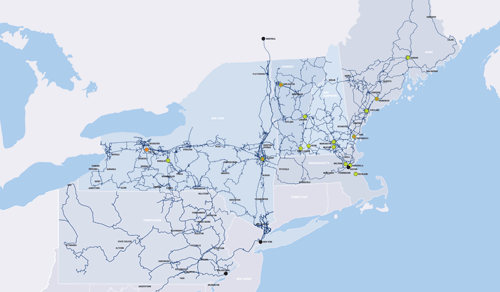
Scaling to meet performance and capacity demands is becoming more and more challenging. Data volumes continue to increase at a rapid pace, fueled by trends such as the Internet of Things (IoT). Forbes predicted that by 2025, more than 150 trillion gigabytes of data will need analysis.
Companies must acquire enough storage capacity to accommodate these data loads and reach the performance levels required to process this data through advanced analytics applications. Mining data is the key to deriving value from the insights contained within it. Statista forecasted that big data will be worth $56 billion by 2020.
Organizations that fail to scale will face outages and bottlenecks that frustrate users, drive customers away, and hamper their competitiveness. Fortunately, businesses can boost their IT scalability by taking advantage of flexible communications platforms, the cloud, and managed edge, as well as adopting a proactive stance toward scaling.
Here’s a closer look at 4 strategies for improving the scalability of your company:
1) Choose a communications platform that supports flexibility.
 As a company grows, it needs to expand its communication resources. Spikes in call volumes may begin to tax your current systems. Having a flexible communications platform prevents your company from needing to adopt a new system when usage increases.
As a company grows, it needs to expand its communication resources. Spikes in call volumes may begin to tax your current systems. Having a flexible communications platform prevents your company from needing to adopt a new system when usage increases.
The right communications platform should supply high levels of bandwidth to accommodate peak-traffic periods. The platform must provide secure access to mission-critical data and applications. For a seamless experience, the platform needs to be supported by a low-latency network.
A unified communications (UC) platform diversifies the ways a company communicates and makes it easier for businesses with geographically diverse sites to stay connected and collaborate. Field offices and remote workers can stay in touch using web conferencing and instant messaging as the business expands its reach.
2) Move to the cloud.
Without the cloud, capacity planning is a guessing game. Companies that try to anticipate data growth typically either overprovision or underprovision storage resources. Finding that sweet spot between spending money on surplus resources and running short of capacity is a balancing act.
With the cloud, organizations can scale up or down on demand, eliminating the need to predict capacity needs. When workloads increase, companies can request additional cloud resources and pay for what they need at a preset monthly rate. Hybrid cloud offers additional flexibility by allowing a business to provision either private or public cloud resources, depending on workload needs.
3) Use a managed edge provider.
 When companies scale, they may experience growing pains as proliferating endpoints put stress on their security strategy and network performance. Managed edge routing and security helps your company ease through these growing pains by accessing the right equipment and security solutions.
When companies scale, they may experience growing pains as proliferating endpoints put stress on their security strategy and network performance. Managed edge routing and security helps your company ease through these growing pains by accessing the right equipment and security solutions.
Managed edge routing makes it easy to scale and upgrade your network. Companies can control and monitor network and Internet usage across multiple locations.
Mobile devices, kiosks, and IoT devices have created many vulnerabilities for companies. Not only are these endpoints prime targets for hackers, but the data transmitted by them is exposed to infiltration and corruption.
Using a managed edge security provider makes it easier to protect your endpoints and the data they generate. Managed edge security protects the network and applications with intrusion detection, firewalls, and content filtering.
4) Be proactive about scaling.
Workloads can be unpredictable, but the cloud enables companies to load-balance to meet changing capacity needs. Some cloud providers allow a business to take a proactive approach to scaling.
A reactive approach to scaling entails monitoring applications and adjusting capacity as performance needs rise or fall. In contrast, proactive scaling enables companies to use their knowledge of when workload spikes typically occur to scale application resources and implement load balancing.
Grow Your Business With Confidence
Data management and limited communications platforms shouldn’t hold your business back from growth. When your company has enough network, storage, and communications resources in place, employee productivity, job satisfaction, and customer service often improve.
For companies in the Northeast, FirstLight is the source for all the tools they need to keep growing. We support our cloud communications platforms with the most extensive fiber optic network in the region. Recently, we have introduced managed edge routing and security to ensure that our customers can scale their networks safely while attaining the performance levels they need.
Find out more about how cloud can help your company scale. Download our Managed Edge solution brief. Reach out to FirstLight.





















